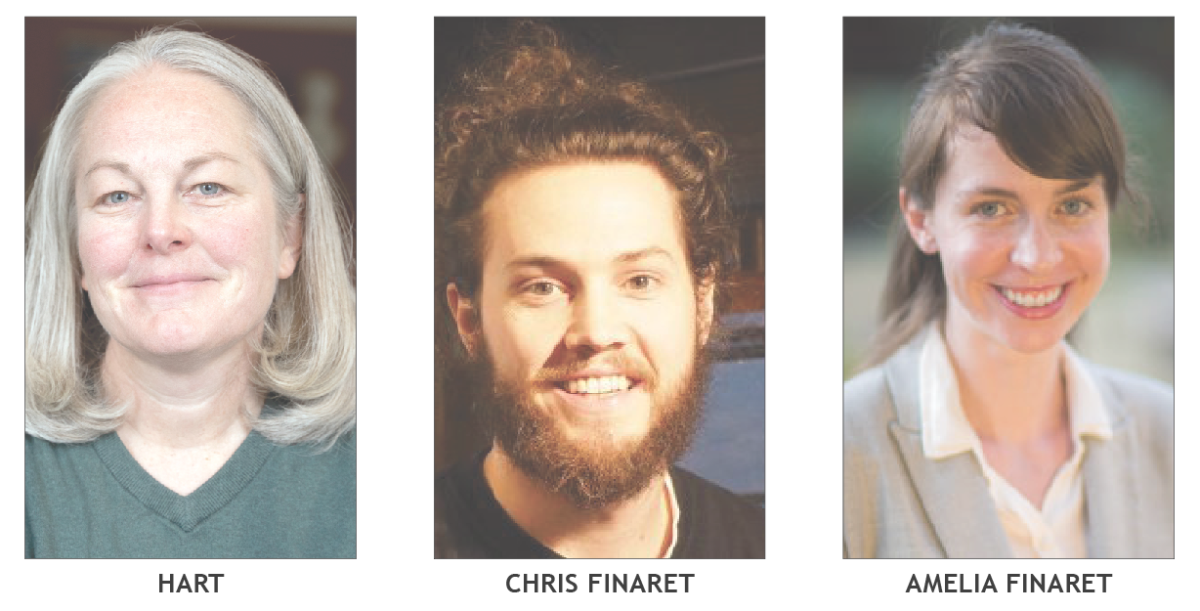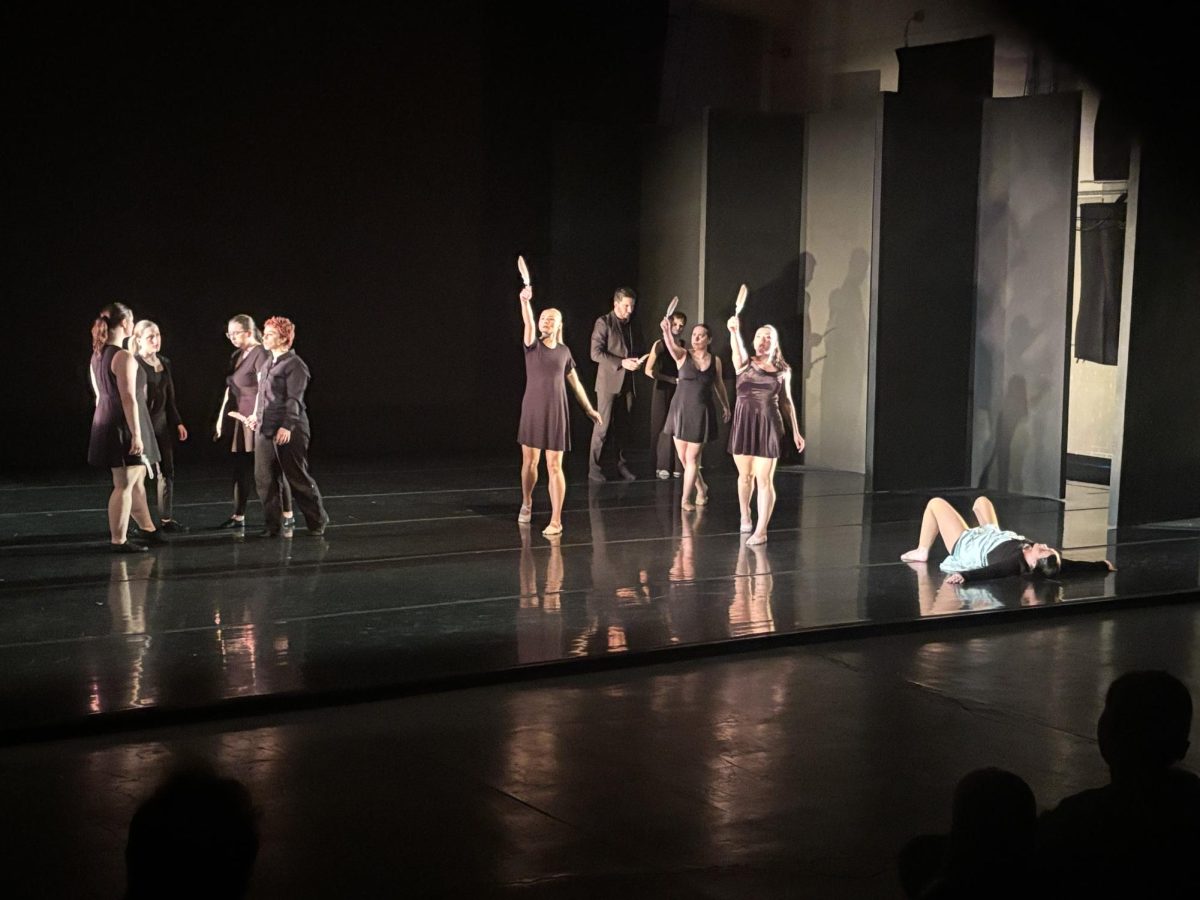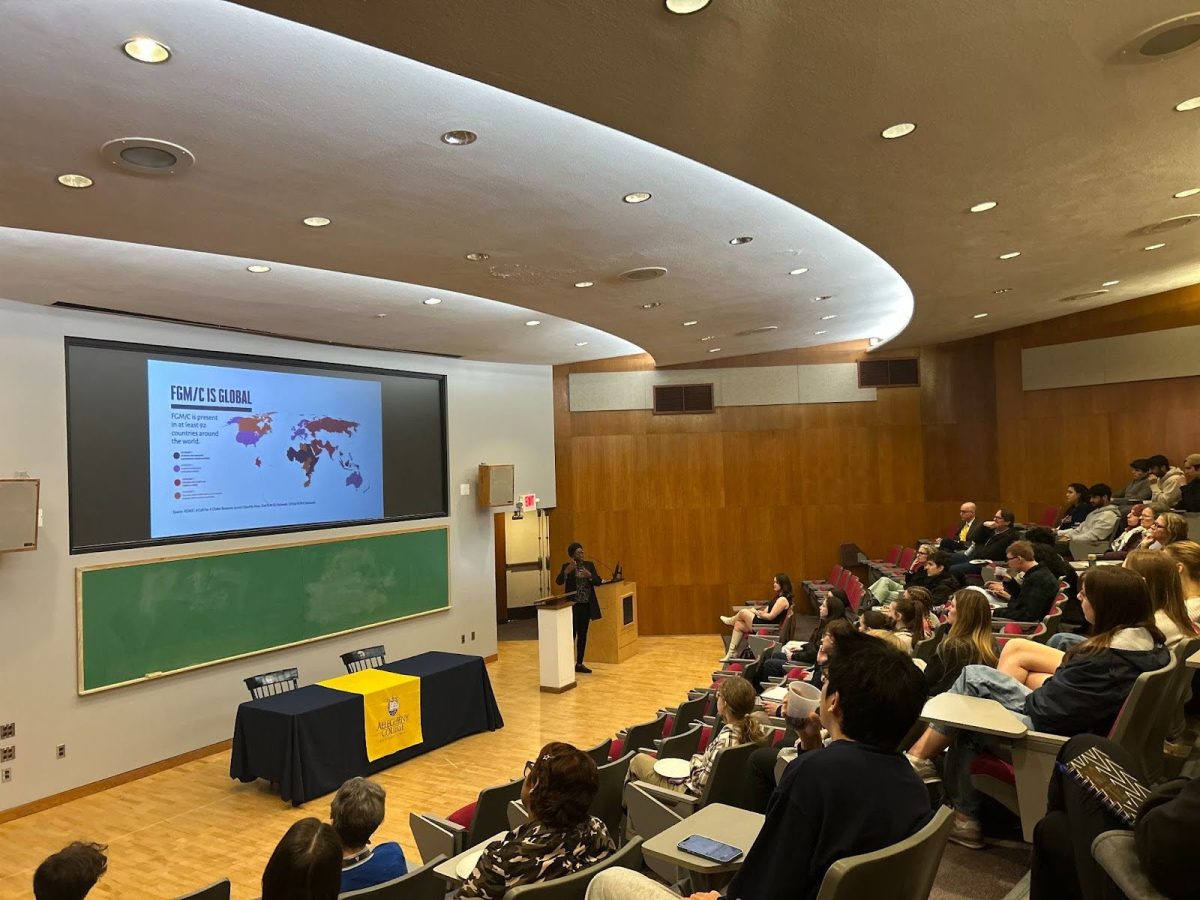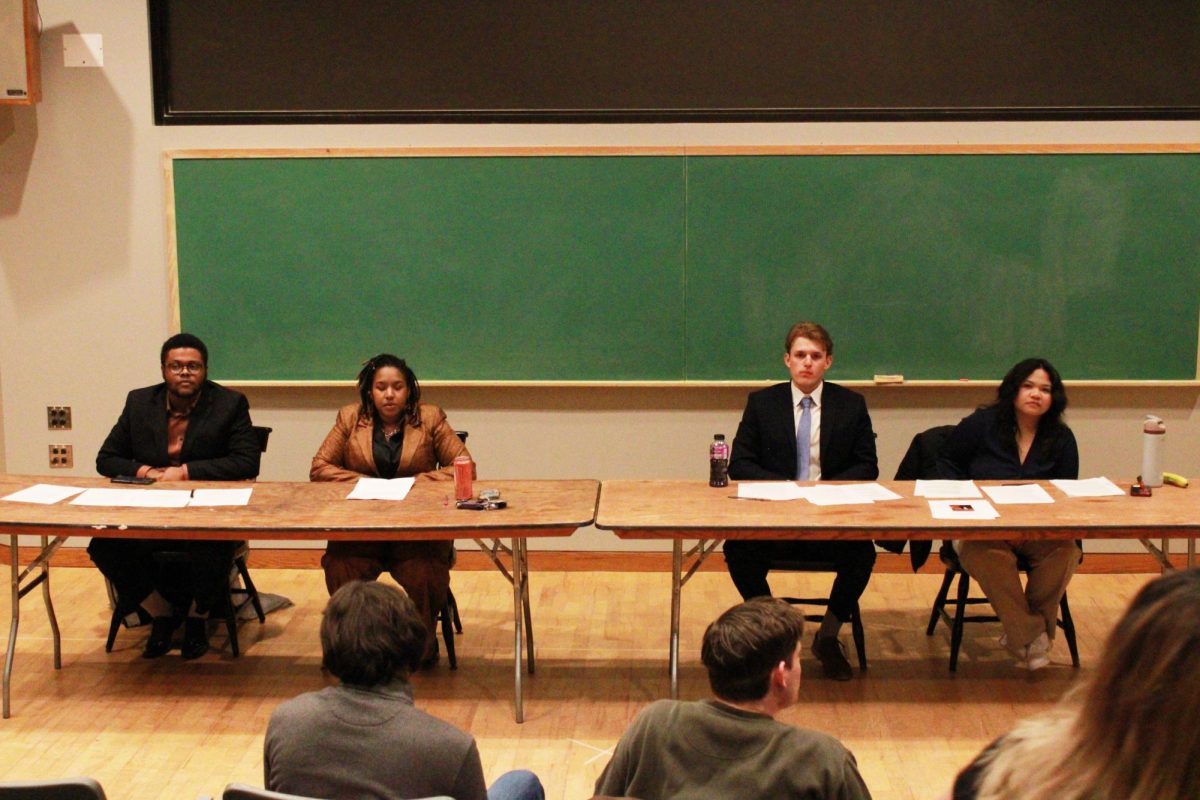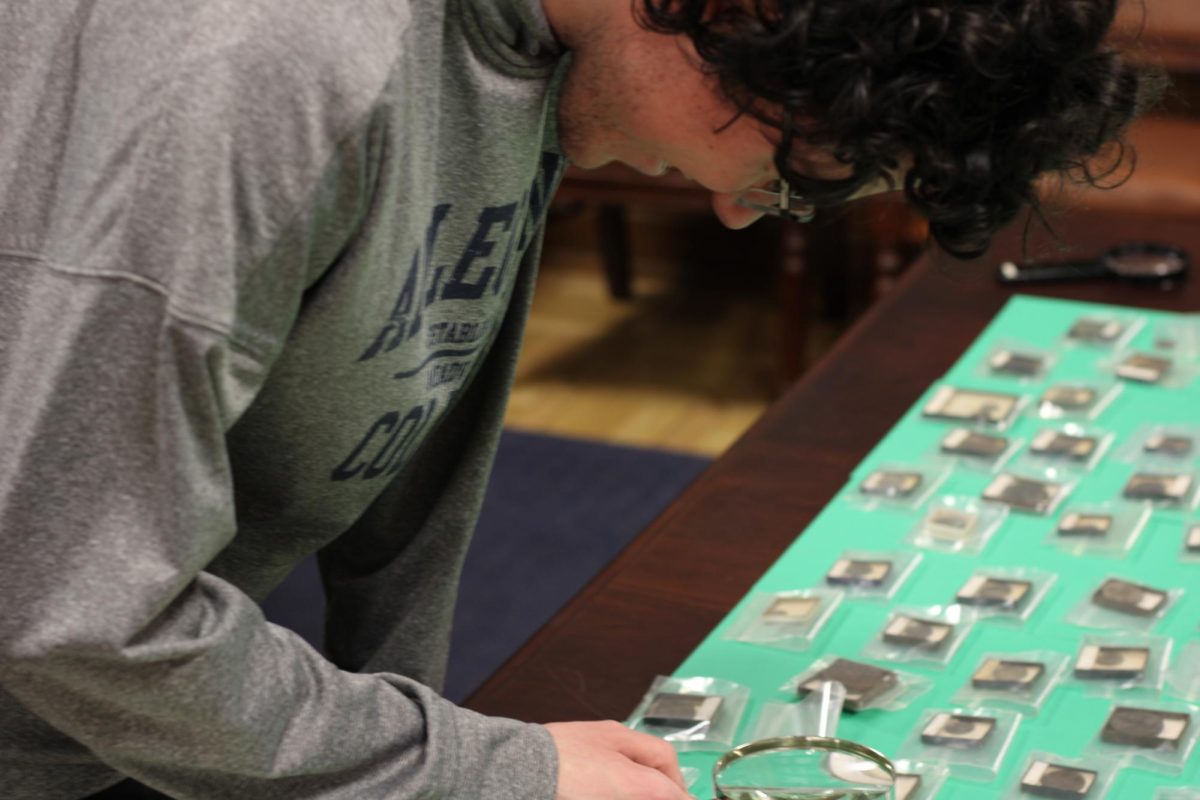Work-life balance is a little easier to find when you can bring your life to work with you. As Global Health Professor Amelia Finaret held office hours on Friday, Oct. 27, she also kept an eye on her three young children, who had the day off from school after Meadville’s trick-or-treating the night prior. At one point in our interview, her daughter approached her, bored, and asked for math problems to do while she waited for our conversation to be over.
“There’s inflexible aspects and flexible aspects,” Amelia Finaret said on being a working parent. “There were days when they were babies where, you know, I would wear them on me while I was teaching because either Christopher was teaching at the same time or they had a little cold.”
Her teaching schedule is intentionally the opposite of her husband’s, Assistant Professor of International Studies, Business and Economics Chris Finaret.
After living and working in Central Africa, the Finarets moved back to the U.S. in 2015 when Amelia Finaret was hired at Allegheny.
“I had been here once for the interview, for like three days,” Amelia Finaret said. “He had never been here, and we didn’t know anything about northwest Pennsylvania. So we just moved here, sight unseen pretty much.”
Chris Finaret secured a job in the economics department shortly after. Though neither of them is originally from Pennsylvania — Chris is from California, Amelia is from Massachusetts — Meadville quickly became home for them and their family. Amelia Finaret added that the small town turned out to be a great place to raise kids.
“Trick-or-treating last night was awesome,” she said. “They just ran around the neighborhood and they could be really free and we didn’t have to worry about cars much. And there’s just a ton of other kids, which is great.”
Working at the same institution has only added to the Finaret’s enjoyment of Meadville, Chris Finaret explained.
“I would say the quality of life of being at the same place and close to home is kind of the best part of the job,” he said.
While the Finarets enjoy the convenience of working at the same place, there is not much overlap in their day-to-day work, given that they are in different departments.
“We’re not on any of the same committees, we’re not on any of the same comps,” Amelia Finaret said. “We don’t teach any of the same classes, you know. We teach in different departments.”
Some campus spouses, though, work in the same department.
English Professor and Director of Writing Alexis Hart explained that one of the greatest advantages of working in the same field as one’s partner is understanding the obligations that come with the job.
“One of the nice things about working in the same profession is having that empathy, I think,” Hart said. “Yes, we have flexible schedules, but we also have a lot of grading, right? So knowing that that is a part of the working world, being able to talk about work in a way that you don’t have to do a lot of extra explaining.”
Hart met her spouse, Assistant Professor of English Michael Crowley, when both were in graduate school at the University of Georgia. Hart later obtained a faculty position at the Virginia Military Institute, while Crowley taught at the school’s writing center.
Before settling at Allegheny, both Hart and Crowley worked at several other institutions. Now, Hart explained, one of the advantages of working at the same institution is operating on the same schedule.
“When he worked at (James Madison University) and then he worked at (Washington and Lee University), we didn’t have the same academic calendars,” Hart said. “That was a real pain because we didn’t have the same breaks, so that could be something of a challenge.”
Not only do their academic calendars now align, but many aspects of life outside of work align as well. Hart explained that being in academia and working in a small town both contribute to an overlap in one another’s social lives.
“I guess it’s both a pro and a con that we know a lot of the same people,” Hart said. “So our social life is connected to the college which, you know I think in a small town, there are opportunities to hear lectures and readings and go to the arts and things like that — so I think that’s an advantage.”
Amelia Finaret said that the high concentration of married faculty on campus comes about from Allegheny’s geography and the physical relocation that comes from searching for a job in academia.
“If you are going for those tenure track positions after you’re getting done with grad school, they’re so few and far between that you really do have to be open to moving anywhere,” she said. “So what that ends up kind of causing is a need to employ both partners in a marriage. It might be particularly a thing here because Allegheny is kind of far from major cities.”
Given that academia is also a demanding and niche career path, Hart believes that there are many couples on Allegheny’s campus because of proximity and, as she puts it, nerdiness.
“It tends to be at school, at work, or in some kind of organization, and so that is exactly how many people meet, right?” Hart said. “Again, that kind of intellectual engagement, the nerdiness, I think of academics. And so I think that engagement with the mind draws people together.”
Mike Crowley is identified in this story as an assistant professor of English. Crowley is separately the faculty adviser for The Campus, and was not involved in the writing or publication of this story.
Categories:
Love at first ‘cite:’ From around the world to Meadville
Story continues below advertisement
0
More to Discover
About the Contributor
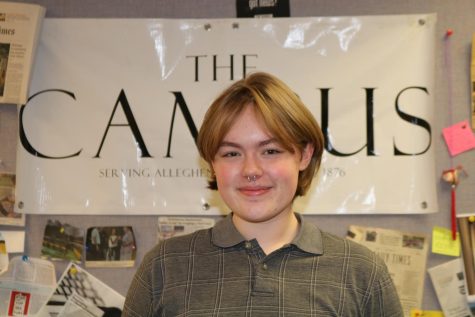
Sam Heilmann, Opinion Editor
Sam Heilmann is a sophomore from Johnstown, PA. She is majoring in Communications. This is her second year on the Campus staff, and her first as Opinion Editor. When she isn’t writing for The Campus, she enjoys painting, listening to music and spending time with her friends.




